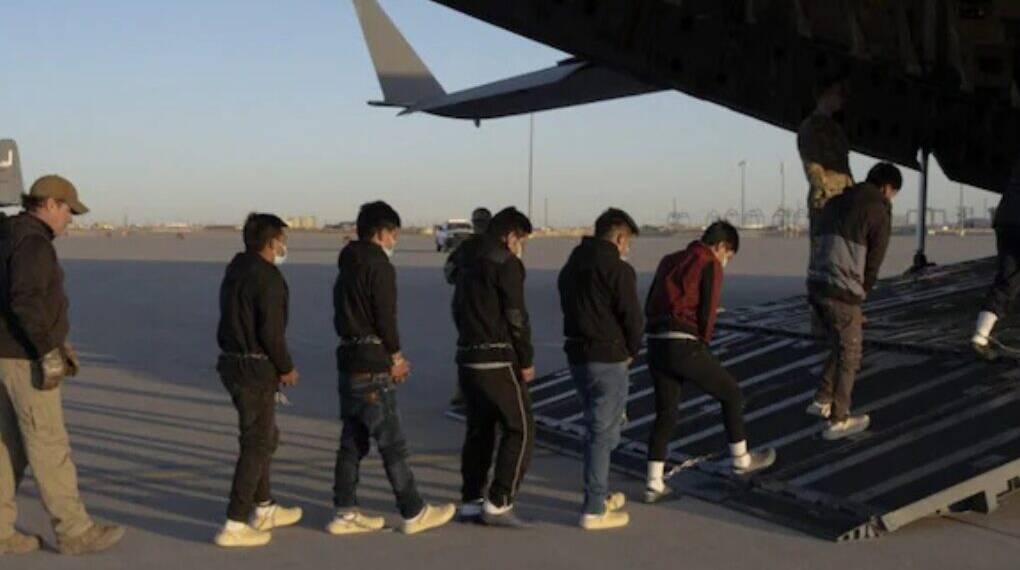In a surprising shift in deportation policy, the United States has begun sending third-country nationals — immigrants not from the U.S. or Eswatini — to one of the world’s last absolute monarchies. Among the first to be deported to the southern African kingdom of Eswatini are five individuals originally from Vietnam, Jamaica, Cuba, Yemen, and Laos.
U.S. immigration officials have confirmed that Eswatini has agreed to temporarily accept third-country deportees under a new agreement. The move comes amid an ongoing effort by the Trump administration to enforce tougher immigration policies and offload detainees when their home countries refuse or delay repatriation.
Eswatini: An Unlikely Destination
Eswatini, formerly known as Swaziland, is a small landlocked country bordered by South Africa and Mozambique. It is unique in many ways — not least because it remains Africa’s only absolute monarchy. King Mswati III, who has ruled since 1986, exercises unchecked authority over all branches of government.
Now, the kingdom is in the spotlight for an entirely different reason — as a holding ground for foreign nationals expelled from the United States. The Eswatini government has stated that the deportees are being held in correctional facilities and will be processed for return to their countries of origin “as soon as feasible.”
Why Eswatini?
The decision to send immigrants to Eswatini raises questions. U.S. officials have not fully explained the rationale, but analysts suggest that Eswatini’s historically close diplomatic ties with Western nations, its limited international scrutiny, and its centralized government make it a convenient partner for such politically sensitive arrangements.
Unlike most African countries, Eswatini does not require open parliamentary approval for such deals. Instead, decisions are typically made at the king’s discretion or through tightly controlled ministries loyal to the monarchy.
A Nation of Contradictions
While Eswatini is now involved in a complex global immigration issue, it continues to grapple with internal struggles that are rarely covered in global media.
King Mswati III’s rule has long been criticized for its authoritarian nature. Political parties have been banned since 1973, and although some civil groups exist, they are excluded from the electoral process. Members of parliament are vetted and approved by traditional leaders aligned with the king. Public dissent is often met with violent crackdowns, and many pro-democracy activists now live in exile.
Despite governing one of the world’s poorest nations — where over 50% of the population lives on less than $4 a day — King Mswati is widely known for his lavish lifestyle. Reports estimate his personal fortune between $200 million and $500 million, including a fleet of luxury cars and multiple palaces.
The king’s personal life is also a subject of international fascination and criticism. He has at least 11 wives and hosts elaborate public celebrations, often seen as stark contrasts to the economic reality of his citizens.
A Nation Still Fighting HIV
Eswatini also bears the world’s highest HIV prevalence rate, with nearly 26% of adults living with the virus, according to UNAIDS. Although the country has made progress in treatment and prevention, much of this was achieved through international support — particularly from the United States. However, that aid has been significantly reduced under the Trump administration.
Health experts warn that such funding cuts could reverse years of progress, especially if the country takes on new responsibilities, such as managing deportees from other nations.
Global and Ethical Concerns
Human rights organizations have expressed concern about the U.S.’s use of third-country deportations — particularly to nations with troubled human rights records. The practice raises legal and moral questions, especially when individuals are detained in countries with limited due process protections.
“This move reflects the growing trend of offloading responsibility,” said a legal analyst with Amnesty International. “When deportees are no longer welcome in their own countries, the U.S. is simply exporting the problem — often to nations ill-equipped or politically unsuited to handle it.”
A Precedent in the Making?
Eswatini’s role may be a test case for broader U.S. efforts to establish “deportation partners” around the globe. If successful, more countries with authoritarian governments and quiet diplomacy could be approached to accept third-country deportees in exchange for financial or diplomatic incentives.
For Eswatini, the short-term gain could be increased foreign investment or aid. But the long-term cost may be deeper international scrutiny — and a heightened spotlight on the kingdom’s internal governance, political repression, and economic inequality.








